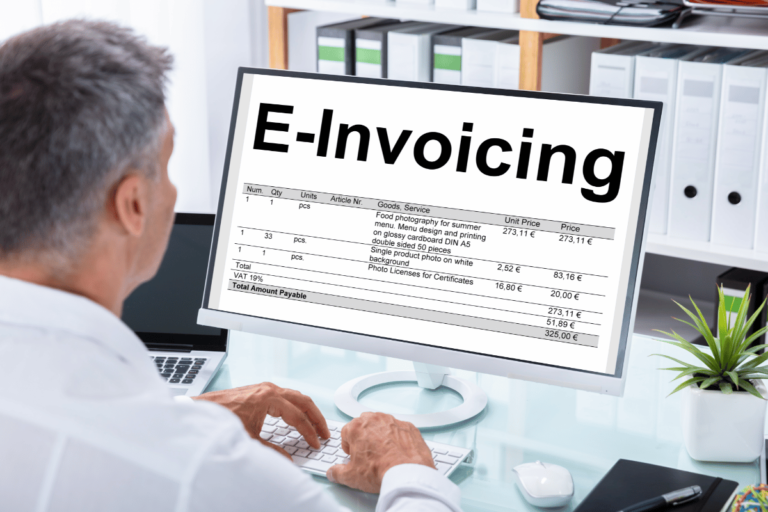Budgeting for Digital Nomads: How to Manage Your Finances on the Go
For digital nomads, learning to budget is key. Their lifestyle changes often, so costs and earnings do too. Having a good budget helps avoid money problems and lets them save. It’s important for digital nomads to plan their money well because their costs and earnings change a lot.
Managing money for digital nomads means picking the right bank and using great budget apps. They need to think about bank fees, exchange rates, and track their spending well. This helps them handle their money better while traveling.
Key Takeaways
- Building a 3-6 month emergency savings fund is recommended to cover unexpected situations.
- Consider income growth potential when choosing a travel location.
- Choose banks that reimburse ATM fees, such as Charles Schwab.
- Travel credit cards waiving foreign transaction fees can save up to 3% on expenditures.
- Premium travel cards often offer bonus points on travel, dining, and grocery purchases.
- Optimize spending by joining co-living spaces, using public transport, and understanding local prices.
Understanding Unique Financial Challenges of Digital Nomads
Being a digital nomad brings its own set of financial challenges. You need to plan and manage your money well. You’ll face costs for living, income that can change, and travel expenses. These challenges make it crucial to manage your money wisely while working remotely.
Living a nomadic life means you might pay more for places to stay. To save money, consider living in shared spaces or using Airbnb. Keeping your living costs low is key to staying financially healthy.
Traveling often and using international phone plans can also affect your budget. Try to use cheaper ways to get around, like public transport or bikes. Sharing cars or bikes with others can also cut down on costs when you’re in new places.
Dealing with different currencies adds another layer of complexity. A multi-currency account can help you avoid losing money when you exchange currency. Budgeting tools can also help you keep track of your spending and plan better.
Handling taxes as a self-employed person in various places is another challenge. It’s important to know the tax rules in your home country and where you live. This helps you follow the law and avoid legal problems. Set up automatic bill payments to avoid missing payments when you’re in different time zones.
It’s smart to have an emergency fund that covers three to six months of expenses. This fund acts as a safety net, letting you focus on your work without worrying about money. Always be careful when doing banking online to avoid security risks.
In summary, managing your finances as a digital nomad means keeping an eye on your income and spending. Choose affordable living and travel options and be ready for surprises. Following these smart money tips will help you enjoy a secure and fulfilling life on the move.
Choosing the Right Bank for Your Needs
For those living an international life, picking the right bank is key. Important factors include ATM fees, foreign exchange rates, and fraud protection. These elements greatly affect digital nomad banking.
ATM Fees and Accessibility
It’s crucial to understand ATM fees and access. Banks like Fidelity Cash Management and Charles Schwab offer fee refunds worldwide. This is a big plus for travelers.
Fidelity Cash Management refunds all ATM fees and has no international usage fees. NBKC also refunds up to $12 USD of ATM fees monthly. Both are great for digital nomads.
Currency Exchange and Partner Banks
Exchanging currency can be expensive, but some banks offer better rates and networks. Revolut and Monese have multi-currency accounts perfect for digital nomads. Revolut supports over 150 currencies and has no-fee FX transactions up to a certain limit.
N26 offers fee-free experiences in Europe, and Wise has low conversion fees in over 40 currencies. These banks make exchanging money easy for digital nomads.
Customer Service and Fraud Protection
Great customer service and strong fraud protection are key for peace of mind. Charles Schwab and Betterment offer global ATM access and fraud protection. Monzo adds security with instant card notifications and the ability to freeze cards.
Digital nomads should look for banks with 24/7 support and top-notch fraud protection. This helps keep finances safe while traveling.
Choosing banks like Capital One 360 or HSBC Expat can also be beneficial. Capital One 360 has a simple setup and a wide ATM network in the U.S. HSBC Expat specializes in international banking with multi-currency accounts and advice.
When picking a bank, think about easy access, good exchange rates, and strong security. This ensures digital nomad banking is efficient, safe, and cost-effective.
Creating a Comprehensive Budget
For digital nomads, making a detailed budget is key. It helps manage money from different sources and changing costs. By using expense tracking techniques and smart income management, nomads can keep up with their money. This way, they can enjoy their freedom.
Tracking Income and Expenses
Keeping track of your money in and out is vital for a strong financial plan. To make a budget for nomads, watch all your spending closely. Apps like Mint, Expensify, Cleo, and HoneyDue can help track your spending:
- Groceries
- Accommodation
- Transportation
- Coworking spaces
- Phone bills
- Entertainment
These apps let you see where your money goes. You can then adjust your budget based on your spending history.
Common Expense Categories
Knowing what you spend money on makes budgeting easier. For nomads, key budget areas include:
- Relocation Expenses
- Housing Costs
- Remote Work Expenses
- Groceries
- Insurance
- Savings
- Debt Repayment
Sorting your spending helps you see where your cash goes. You can find ways to save. Using budgeting strategies for digital nomads like getting deals on places to stay and advice from expats can help too.
Good tracking and managing your money are key to staying stable financially. A well-made budget lets digital nomads live their dream life without worrying about money.
Budget Tracking Tools for Digital Nomads
Managing money while traveling can be tough for digital nomads. Luckily, there are many budget tracking tools and ways to budget manually. Whether you love technology or prefer simple methods, there’s something for everyone.
Top Budgeting Apps
Nowadays, many financial apps for remote work help digital nomads with their money. Apps like Mint, Expensify, and Cleo are great for those always on the move. They help manage accounts, track spending, and report on finances, no matter the currency.
- Mint: Offers credit score monitoring and detailed categorization of spending.
- Cleo: Provides personalized savings tips based on user spending habits.
- PocketGuard: Alerts users when bills are due and aids in preventing overspending.
Apps like Pennies and Trailwallet are great for international travelers. They automatically detect currency and apply exchange rates for tracking expenses. Pennies supports over 200 currencies for just $4.99 on iOS. These financial apps for remote work make budgeting easy with a smooth user experience and tools for dynamic lifestyles.
Manual Budget Tracking Methods
Some digital nomads prefer manual budgeting techniques over apps. Traditional methods like spreadsheets, notebooks, or budget planners offer a personal way to manage money. These methods let you customize your budget to fit your needs. Here are the benefits:
- Flexibility: Tailor your budget tracking to specific expenses like quality computer equipment upgrades or specialized tools for different professions.
- Detail Oriented: Record detailed daily expenses, from where you stay to what you buy.
- Personalization: Create a budget system that suits your life and work without needing technology.
Choosing apps or spreadsheets, the goal is the same: keep a clear view of your finances as a digital nomad. Using budget tracking tools or manual budgeting techniques helps you manage your money well. This leads to better financial health and peace of mind.
Effective Budgeting Methods
For digital nomads with changing incomes and unique costs, knowing how to budget is key. There are many ways to manage money that help keep finances in check and reach goals.
Zero-Sum Budget
The zero-sum budget strategy is a detailed plan where every dollar goes to expenses or savings. It makes sure income equals expenses, helping with mindful spending and saving. This method is great for digital nomads with changing incomes. It lets them set aside money for living costs, food, travel, insurance, savings, and debt.
50/30/20 Budget
The 50/30/20 budget is another way to manage money. It splits income into three parts: 50% for needs, 30% for wants, and 20% for savings and debt. For example, a digital nomad might use 50% for basics like a place to stay, food, and insurance. 30% for fun activities and eating out, and 20% for saving or paying off debt. This method is easy to follow and keeps finances balanced.
Envelope System
The envelope system is a classic way to budget, now adapted for digital nomads through apps and spreadsheets. It means dividing money into different areas like living costs, food, and travel. Using a budgeting app or spreadsheet, digital nomads can set limits for each area. This keeps spending in check by not going over set amounts.
Pay Yourself First Method
The “pay yourself first” method puts saving first. It means setting aside a part of your income for savings right away. By seeing savings as a must-do expense, digital nomads can keep building their savings. This builds a strong savings habit over time.
Each budgeting method has its own benefits, and digital nomads can pick or mix them based on their needs and goals. Using these strategies helps manage money better and reach financial stability.
Minimizing Costs as a Digital Nomad
For digital nomads, saving money is key to enjoying their travels. By being smart with travel, living arrangements, and daily costs, you can live well without spending too much. Here are some tips to save money on places to stay, shop locally, and eat out without breaking the bank.
Travel and Accommodation
Traveling on the off-season can save you up to 23% on flights and places to stay. Booking flights 2 to 8 months early and flying on certain days can also lead to cheaper tickets. Sites like Going or PlanMoreTrips can help you find great deals on flights.
For cheaper places to stay, try negotiating with hotels for longer stays or look into hostels, guesthouses, or Airbnb rentals. Using trains, buses, rideshares, and budget airlines can also make your trips more affordable.
Food and Drink
Eating out on a budget is easy if you choose local spots over touristy ones. You’ll get to try real food at lower prices. Shopping at local markets for groceries is another way to save money. And don’t forget to carry a refillable water bottle to avoid buying bottled water all the time.
Local Living and Shopping Tips
Living like a local not only enriches your experience but also saves you money. Shopping at markets for everyday items can cut your expenses. Steer clear of places that cater only to tourists to truly experience the culture without spending a lot.
By following these tips on saving money while traveling, you can make your adventures both enjoyable and budget-friendly. Remember, being smart with your spending can make your digital nomad life both rewarding and financially wise.
Managing Taxes and Compliance
More digital nomads are on the move, making tax compliance for digital nomads harder. They must deal with taxes in many places, use tax treaties, and get expert advice. This helps avoid fines and stay on the right side of the law.
Understanding Tax Obligations
Digital nomads must know their tax duties in their home and work countries. Freelancers, with their changing income, should look into international tax obligations. They need to plan for taxes and living costs well.
Good tax planning helps avoid big tax surprises. It’s smart to save 3-6 months of living costs in an emergency fund. This protects against unexpected bills.
Utilizing Tax Treaties
Tax treaties are useful for digital nomads. They prevent paying taxes twice, which is a big issue for those working in many places. Knowing which treaties apply can make taxes easier and lower the tax load.
As blockchain makes tax tracking more efficient, these treaties become even more important. They add efficiency and clear rules to the tax process.
Seeking Professional Advice
Getting help from tax pros is key for tax compliance for digital nomads. Experts offer custom tax advice, keeping up with law changes. Digital nomads might want to register as a business to better manage taxes.
Experts can guide through the complex tax rules of different countries. This helps digital nomads stay in line with the law.
Financial Planning and Saving for the Future
For digital nomads, it’s key to plan your finances well. You might earn and spend money in different currencies. So, looking into international savings accounts and retirement plans is smart.
International Savings Accounts
Opening international savings accounts is a great move for nomads. They let you handle money in many currencies, which helps with currency changes. Plus, you might pay less in fees, which is good for your wallet.
Retirement Plans for Digital Nomads
Planning for retirement is important for your long-term money safety. Nomads should think about U.S. IRAs or U.K. SIPPs. These accounts give tax perks and the flexibility you need for your lifestyle. Aim to save 10% of your income for retirement to build a strong future fund.
By focusing on financial planning for nomads, you can keep your money safe. Whether it’s for emergencies or retirement, these strategies will help you build a secure future.
Dealing with Financial Uncertainty
Digital nomads often face financial ups and downs due to their work and travel plans. But, with smart financial planning, you can make your income more stable. This helps you feel more secure about your money.
Diversifying Income Sources
For digital nomads, having different ways to make money is key. This means you’re not just relying on one job. By using your skills in areas like writing, design, programming, and marketing, you can find more work. Sites like Remote.co and FlexJobs show there are many remote jobs out there, making it easier to earn in different ways.
Building an Emergency Fund
It’s also important to save money for emergencies. This fund helps you pay for unexpected costs without going broke. Try to save enough to cover a few months of living expenses. This safety net is crucial for digital nomads, as you need about 3000-5000 EUR/USD a month to live comfortably.
Using these strategies can really lower your financial risks. It helps you build a strong financial safety net. Getting good insurance and being flexible also helps you bounce back from financial surprises.
Budgeting for Digital Nomads: How to Manage Your Finances on the Go
As digital nomads, managing money can be tough. It’s key to budget well to live well and enjoy your travels. Accommodation costs are a big part of this. You can choose from hostels, hotels, or apartments, each with its own price tag. Monthly rentals can save money if you plan to stay long-term.
Digital nomads often spend about $1,000 a month in Southeast Asia as backpackers. But, it can go up to over $5,000 a month in Western Europe for a family of four. This includes costs like living space, utilities, internet, laundry, and food.
Managing these costs means knowing the local economy. For example, doing laundry in places like Bali or Thailand is cheap, at about $2 per kilogram. Using local services helps digital nomads save money.
It’s also smart to plan for things like toiletries. Finding a balance between taking care of yourself and sticking to your budget is key. Good clothes and shoes are important too. They last longer and keep you comfortable on your travels.
Work expenses are another big part of the budget. Having good computer gear is important for staying productive. Sometimes, you’ll need to buy new tools or upgrade your laptop. Make sure to include these costs in your budget.
Don’t forget about visa fees, which can change depending on where you go and how long you stay. Tools like XE and Trabee Pocket help you keep track of your spending and stay on top of your finances.
Budgeting is more than just tracking what you spend. It’s good to have different ways to make money, like freelancing or dog walking. This helps you stay financially stable and prepared for surprises.
Before starting your digital nomad journey, pay off any debts you have. Saving money for emergencies is also a good idea. Aim to save enough to cover two months of living costs, plus extra for emergencies.
Many travelers use credit and debit cards for their expenses. Tell your bank about your travel plans and check your statements often. It’s also smart to have some cash on hand for small costs and emergencies.
In short, budgeting for digital nomads means careful planning, managing costs, and finding different ways to earn money. By doing these things, you can live a happy and stable life while traveling.
Conclusion
Budgeting for digital nomads is complex. It involves understanding financial challenges, using tools to track and cut costs, and planning for the future. Digital nomads should aim to save three to six months of living expenses in an emergency fund. This helps protect against unexpected costs.
Using websites or apps like Hotellook or WayAway Flight Aggregator can find great travel deals. The DrimSim universal SIM card also offers connectivity in over 190 countries. It’s important to have debit or credit cards with no foreign transaction fees to save money.
It’s smart to have insurance for health, travel, property, and liability while on the move. Diversifying income and starting to invest early helps with long-term financial stability. Regularly adjusting investments to keep the right balance is also crucial.
For full-time travel, setting aside $1500 USD a month is advised for budget-friendly countries. Follow the 50-30-20 rule: 50% for needs, 30% for fun, and 20% for savings. Living costs can be cut by house sitting, pet sitting, or working for accommodation. Travel insurance, like EKTA, offers peace of mind at a low cost. With the right approach, digital nomads can enjoy financial stability and their lifestyle.
Source Links
- Budgeting for the Nomadic Life: Managing Your Finances On the Go – Nomad Concierge
- Budgeting As A Digital Nomad
- Managing Finances as a Digital Nomad: Budgeting and Saving Strategies
- Managing Money as a Digital Nomad | Chase
- 15 Best Banks for Digital Nomads in the US (2024)
- The 10 Best Bank Accounts for Digital Nomads in 2024
- Best Banks for Digital Nomads: Simplify Your Banking
- A Complete Guide to Money Management for Digital Nomads
- How to Plan Finances as a Digital Nomad Starting Out
- Digital Nomad Budget: A Comprehensive Guide to Managing Your Expenses (2024)
- Best Budgeting Apps for Digital Nomads – Freaking Nomads
- The Best Banks for Digital Nomads: Managing Finances on the Go
- How To Budget as a Digital Nomad: The Ultimate Guide
- Budget Ideas for Digital Nomads: Zero Sum, Envelope & More
- Budgeting as Digital Nomads: 7 Tips on Finance & Living Cost
- Your Complete Guide to Budgeting as a Digital Nomad
- Smart budgeting tips for digital nomads in 2024
- Finances for Digital Nomads and Freelancers: Mastering Your Money on the Move
- The Digital Nomad’s Guide: How to Manage Finances On the Go In Different Situations // GrowthScribe
- Managing Your Finances: A Digital Nomad’s Guide to Budgeting
- Here’s What Happens When Digital Nomads Don’t Plan a Budget
- Future financial planning for remote workers and entrepreneurs
- How to Travel and Make Money: Top Tips for Digital Nomads
- Ultimate Guide to the Digital Nomad Lifestyle
- Tips for Being a Digital Nomad – Essential Strategies for Success – InspireAmbitions
- Tips for digital nomads to manage their finances — The Home Office Life
- How to manage your money as a digital nomad
- The Ultimate Guide to Financial Management for Digital Nomads
- Budgeting And Financial Considerations For Digital Nomads – FasterCapital
- Digital Nomad Budget: How Much Money Do You Need? – The Nomad Hive







